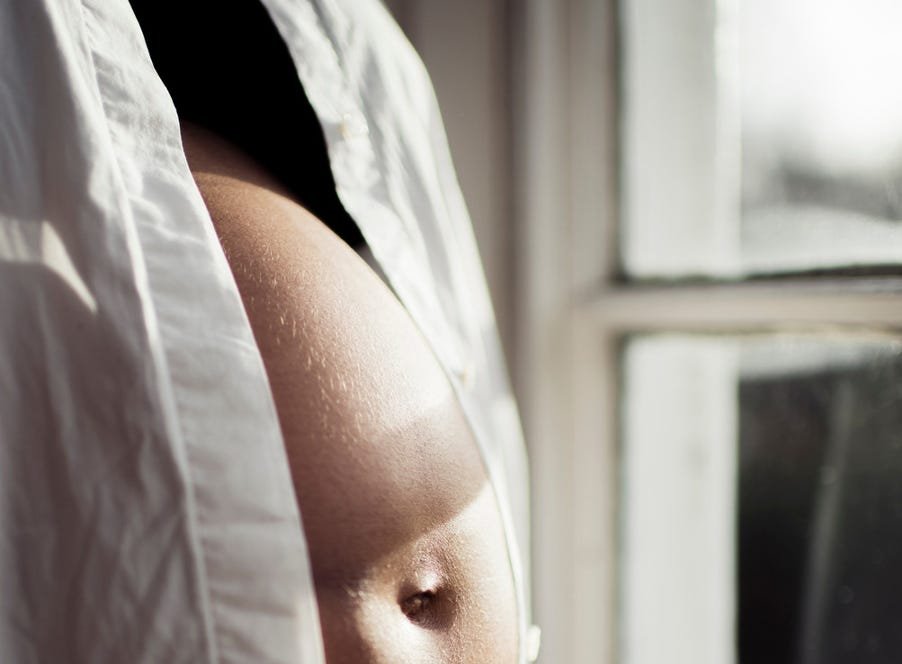
Ultimate XL Nappy Disposal Bundle with 18 Refills
Bundle & Save 40%
Subscription orders can be cancelled at anytime. Free delivery on all subsequent subscription orders. Find out more about subscriptions.
They’re easy and fuss free
Your products are automatically sent to you
You save up to 10% when you sign up for a subscription
You can cancel at any time

Have a hankering for comfort food? Or do just feel like to need (not just want) extra salty snacks all the time?
Don't worry, pregnancy cravings are common (around 85% of pregnant people experience them) and food aversions and changing taste buds are just another delightful part of the pregnancy symptom package.
Not all pregnant people crave the same foods, but there are some more cravings that are more common than others. We're here to answer all your curiosities about cravings and how your tastes change during pregnancy.
So buckle up and get ready to embrace the new exciting (and weird) culinary world of pregnancy cravings.
Pregnancy cravings are a common experience for many people during pregnancy. They are powerful urges to eat certain foods, even if they are not typically part of one's diet or are not particularly healthy. Cravings can range from sweet to salty to spicy and can vary in intensity and frequency throughout the pregnancy. Some people crave specific types of food or even non-food items, such as ice or dirt.
While the exact cause of pregnancy cravings is not fully understood, they're believed to be related to hormonal changes and the body's increased need for nutrients during pregnancy.
Pregnant people need to listen to their bodies and try to make healthy choices when satisfying their cravings.
Pregnancy food aversions are when a pregnant person experiences a strong dislike or avoidance of certain foods that they'd normally enjoy. Often, they're caused by hormonal changes and can vary in intensity and duration.
It's common for pregnant people to develop aversions to food and drinks that they should avoid anyway, such as coffee and seafood. If you experience aversions during pregnancy, it's important to listen to your body and avoid foods that make you feel sick or uncomfortable, while maintaining a healthy and balanced diet.
You might notice your cravings starting relatively early in your pregnancy, often developing around the third to eighth week of your first trimester - some pregnant people even notice their cravings before they know they're pregnant! Cravings can also regularly coincide with morning sickness, which typically arises around the six-week mark.
During your second trimester, you might notice your cravings or food aversions are at their peak, so get ready to bulk buy ice cream, cream cheese, and apples - or whatever it is you're into.
In your third trimester, your cravings will probably cool down a little and then significantly drop after the birth of your little one. Although you might have discovered some new favourites that you just can't live without.
As we said, no two pregnant people are exactly the same!
You might want pizza and only pizza (maybe pop some veg on top), while others might be sick at the thought of a Margherita, it all depends on you.
Although every palette is unique, here's a list of some common cravings that many pregnant people experience:
Even though it's normal to crave unhealthy foods, it's important to try to eat a nutritionally balanced diet for the health of you and the baby.
As we said, many pregnant people find themselves craving super salty foods while pregnant. This could be down to your body asking for more of what it needs during pregnancy - so if you have a thirst for salt, you might be lacking some sodium in your diet.
It's important to limit salt intake during pregnancy due to the risk of hypertension and cardiovascular disease, and while crisps, fries and salted peanuts are all tasty options, if you're really trying to tackle that salt craving healthily, naturally salty foods are a great way to do so. Things like soy sauce, avocado, dairy products, bread and - dare we say it - pickles are a great way to subside your salty appetites.
Sugar cravings are fierce during pregnancy - possibly unlike any other. So, if your sweet tooth has majorly grown recently, feel free to chalk that up to cravings. This one probably isn't trying to give your body what it needs, though, and could get a little risky if you're not consuming in moderation.
It's important to limit sugar intake during pregnancy due to risks of gestational diabetes, gestational weight gain and preeclampsia, so a good way to tackle cravings for all things sugary is to make sure you're taking in a lot of protein and fats to level out your blood sugar. We're not telling you to put the sweeties down altogether, but just make sure your diet is balanced and you're being kind to your body during your pregnancy.
Many pregnant people find that they're put off by hot dinners and wish for something room temperature or cold to satisfy their needs. Some cold cravings, like really cold milk or ice cream (again), can be down to the need for calcium in your diet. But others, such as ice, could be down to food aversion, rather than cravings - as ice doesn't have a specific flavour.
To be honest, this one is probably a blessing in disguise. At least craving cold water or ice helps you stay hydrated. Especially if you're pregnant in the height of summer.
Fruit is a very common craving for pregnant people and there's the age-old tale that if you're craving fruit when you're pregnant, you're having a girl (which is not at all proven, but you never know).
This craving can certainly be more beneficial than cravings for unhealthier foods, however, it's good to remember that fruits are still very high in natural sugars so should also be consumed in moderation.
Some pregnant people crave things that aren't considered food, such as coal, ice, stones, chalk, clay, or soap. This is known as pica and may be a sign of a mineral deficiency or anaemia.
Even though these cravings can be hard to resist, it's important to avoid eating non-food items because they could be damaging to your digestive system. If you're finding it difficult to cope with your cravings during pregnancy, it's best to reach out to your GP or midwife for support.
Healthy eating while you're growing your little one is important, and while there's no need to go on a super strict diet, it's still good to be mindful of keeping your meals balanced and getting all the nutrients you and your baby need.
Cravings often try their best to get in the way of this - chocolate 24/7 would not necessarily be considered a balanced diet (darn), and lots and lots of sweets can have some negative effects. But remember, your body needs healthy fats, sugars, and salts and, as we said, your cravings could be telling you what your body needs in a good way.
If you feel like your cravings are getting out of hand, try to switch to healthier alternatives, and make sure to stay hydrated by drinking plenty of water. Curbing your cravings can be very tough, but giving in occasionally is not the end of the world.